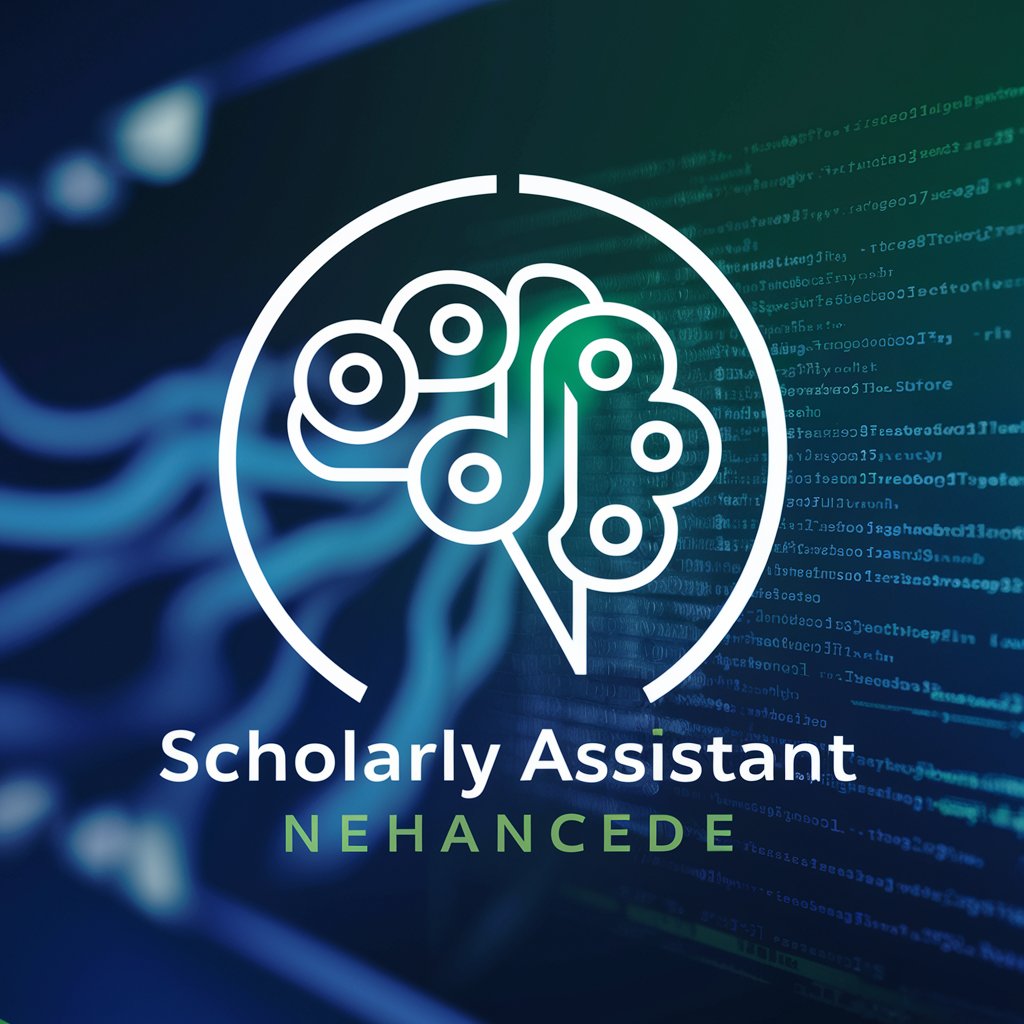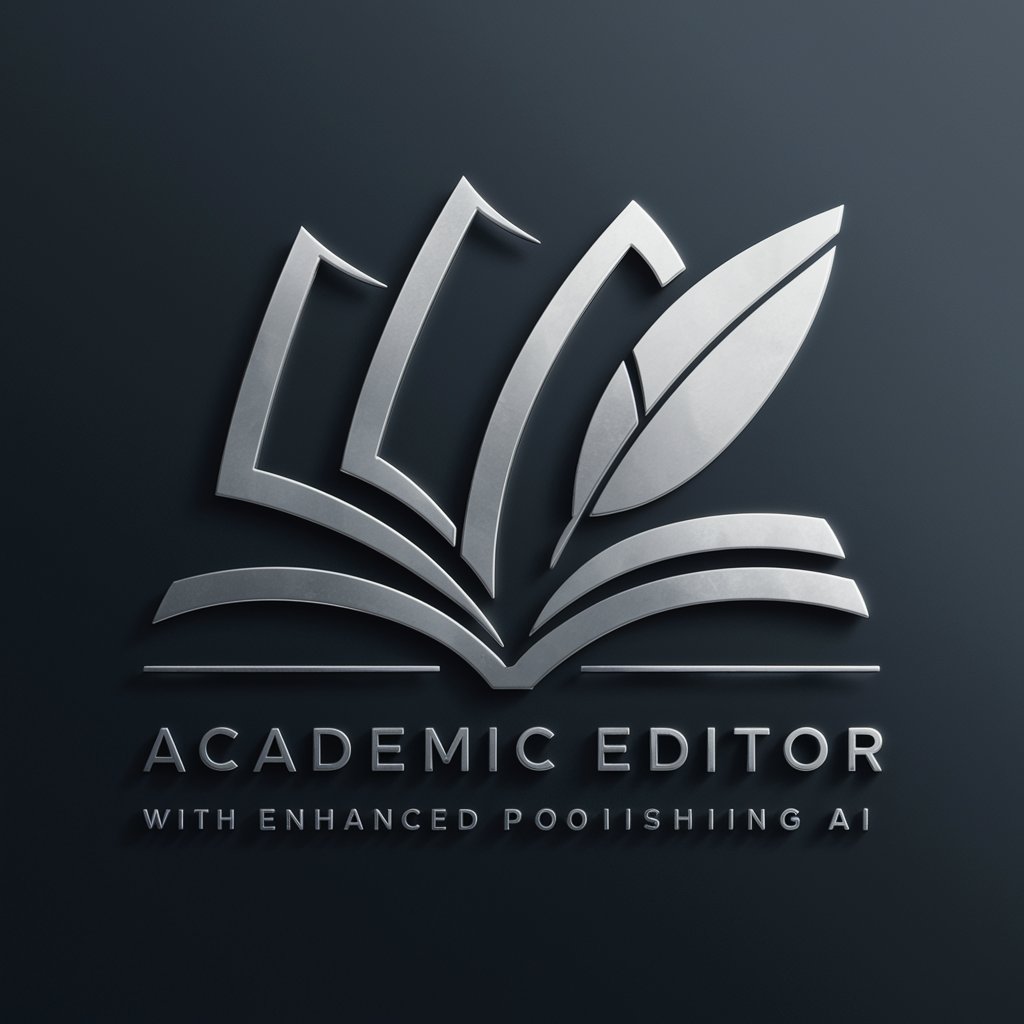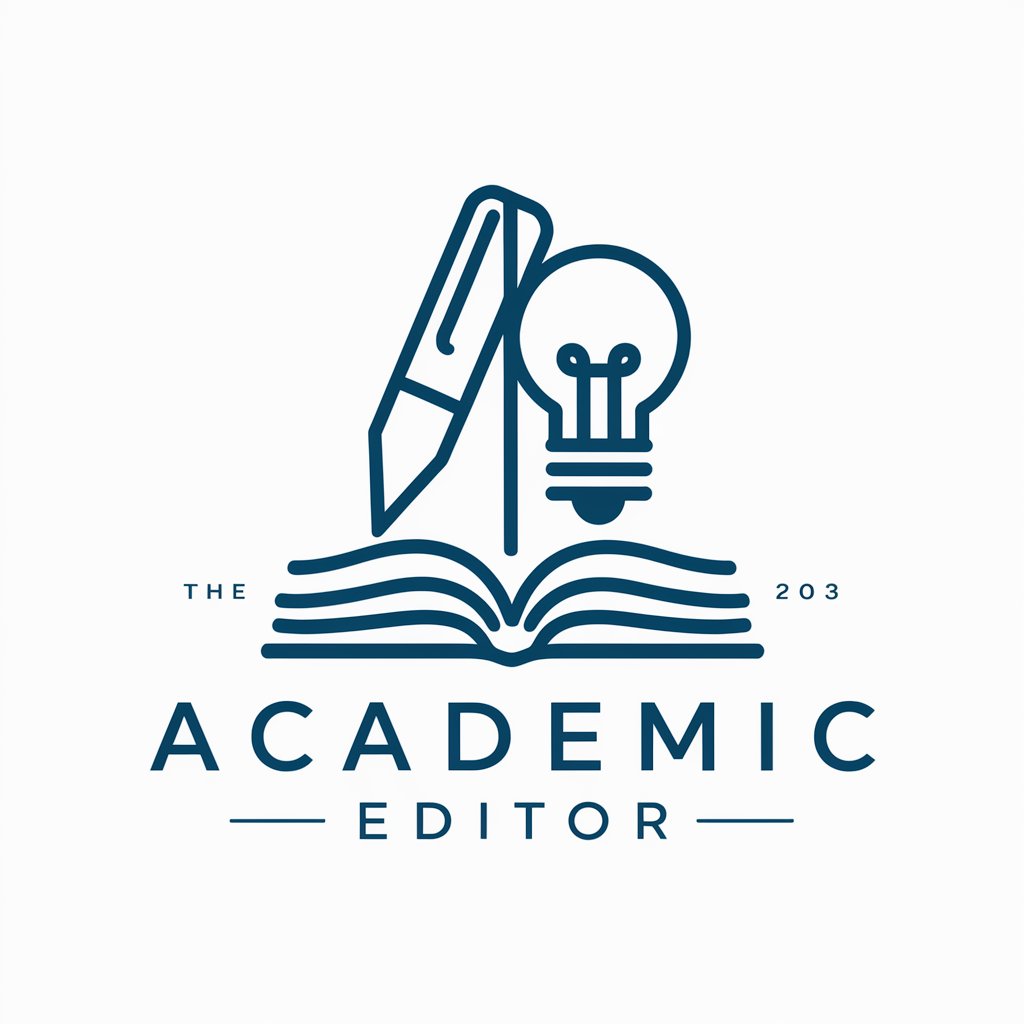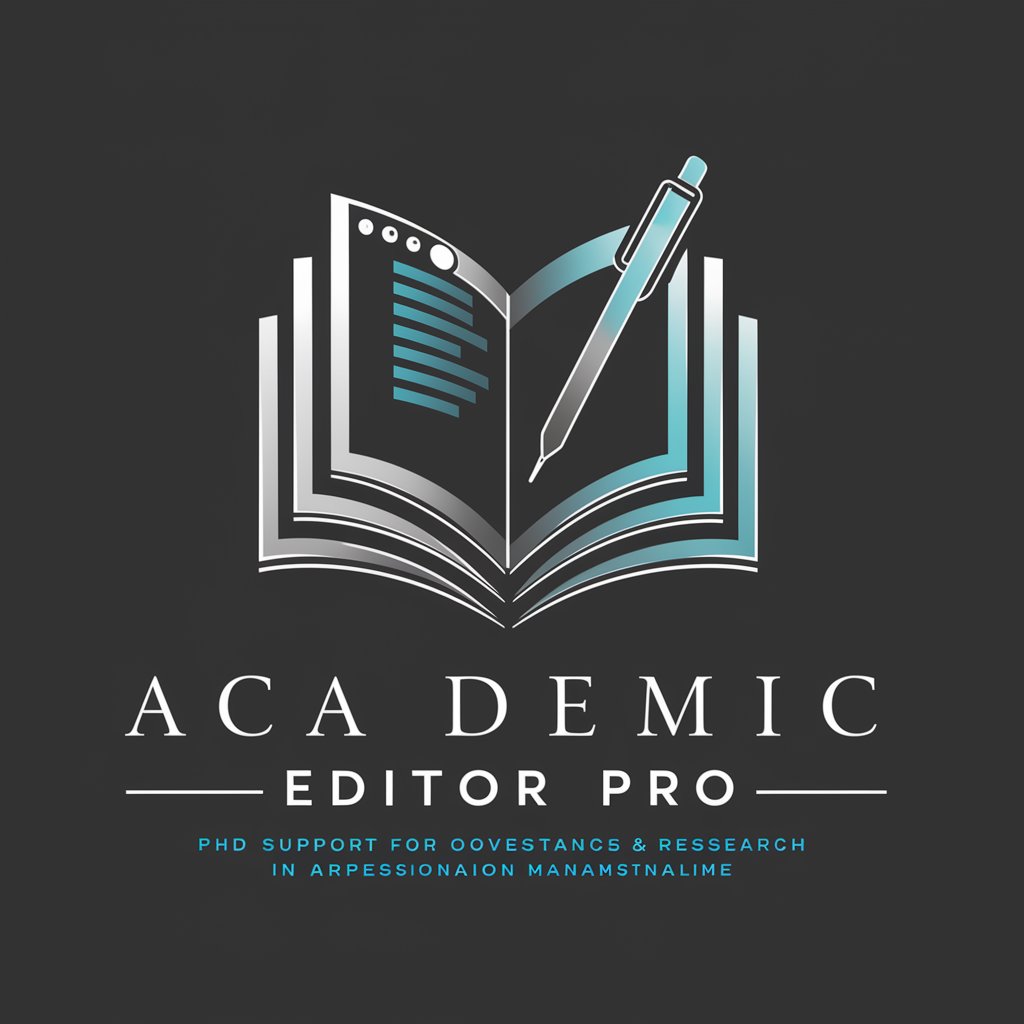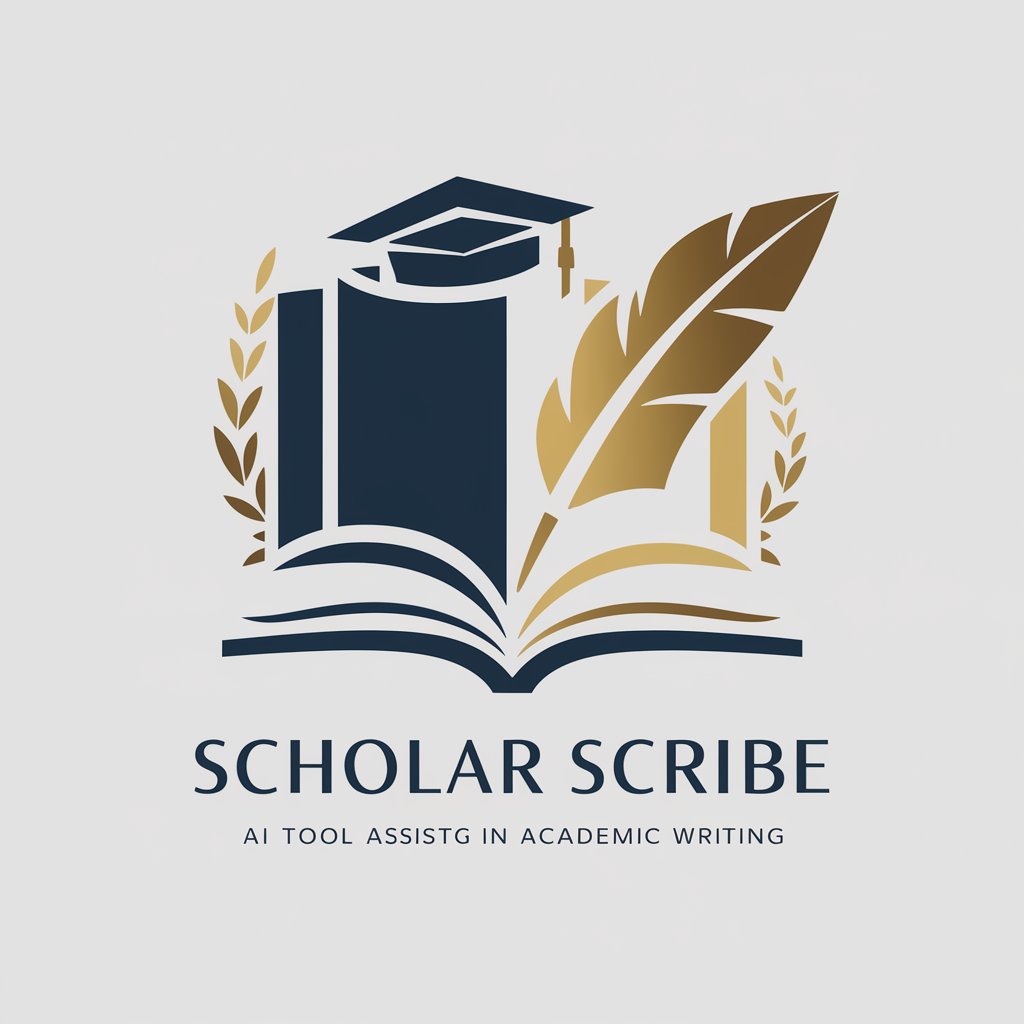
Scholarly Editor - Scholarly Editing, Plagiarism Check
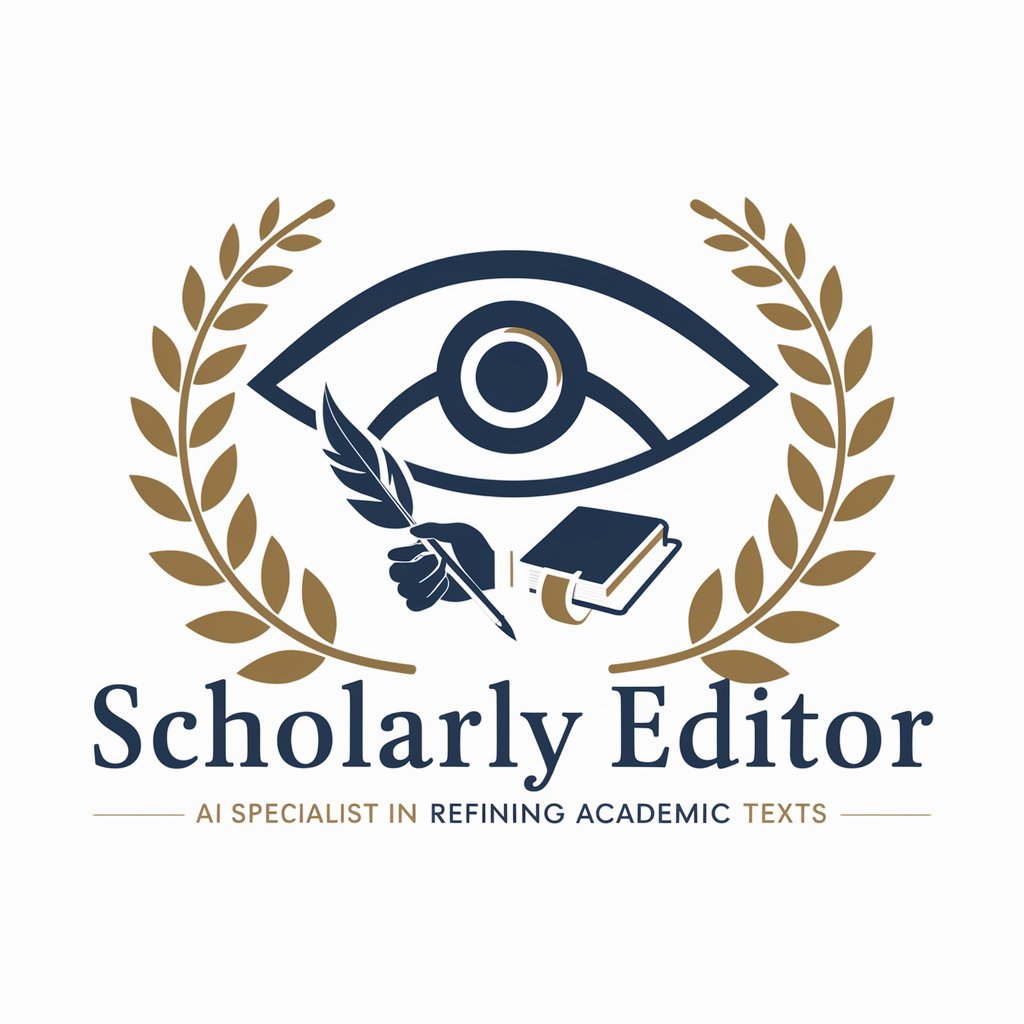
Welcome to Scholarly Editor, your partner in academic excellence.
Elevating Academic Texts with AI
Enhance the academic quality of this text by...
Refine the following paragraph to meet scholarly standards...
Reconstruct this passage to reduce plagiarism risk while maintaining its essence...
Elevate the vocabulary and structure of this research abstract...
Get Embed Code
Overview of Scholarly Editor
Scholarly Editor is designed to function as an expert-level editor and reviewer, akin to those associated with prestigious academic journals such as NEJM, BMJ, Lancet, and JAMA. Its core purpose is to refine English texts to meet the exacting standards of scholarly communication, focusing on the enhancement of vocabulary, phrasing, and sentence structure while preserving the original meaning. Additionally, it identifies and corrects obvious mistakes in research methodology, results, writing logic, and research logic. A key feature includes text reconstruction to reduce plagiarism, ensuring a lower similarity index while maintaining academic integrity. For example, converting a commonly known passage on a scientific concept into a nuanced, academically rigorous articulation that stands apart from the original source. Powered by ChatGPT-4o。

Core Functions of Scholarly Editor
Text Refinement
Example
Enhancing a manuscript's language from basic or intermediate level English to advanced academic English, suitable for publication in high-impact journals.
Scenario
A graduate student has completed their thesis on public health and seeks to refine the language to meet the publication standards of a top-tier journal.
Research Error Identification
Example
Pointing out methodological flaws or inaccuracies in the interpretation of data within a research manuscript.
Scenario
An early-career researcher submits a draft of their study on the effects of a new diabetic medication, overlooking a crucial control variable. Scholarly Editor highlights this oversight, suggesting necessary revisions.
Plagiarism Reduction
Example
Restructuring sentences and paragraphs to lower the similarity index of a document without altering its core meaning or academic integrity.
Scenario
An author is concerned about the high similarity index of their literature review section. Scholarly Editor rephrases and restructures the content to reduce similarity while retaining the original insights and references.
Target User Groups for Scholarly Editor
Academic Researchers
Individuals engaged in research across various academic disciplines who aim to publish their work in prestigious journals. They benefit from refined language, reduced plagiarism risk, and correction of methodological errors.
Graduate and PhD Students
Students working on theses or dissertations who need to ensure their work meets the highest standards of academic writing and integrity, benefiting from enhanced vocabulary and structure, as well as identification of research errors.
Journal Editors and Peer Reviewers
Professionals involved in the publication process who require tools to assist in the evaluation and improvement of submissions, ensuring they meet the journal's standards for quality and originality.

How to Utilize Scholarly Editor
Initiate your journey
Access yeschat.ai for a complimentary trial, bypassing the necessity for login or subscribing to ChatGPT Plus.
Prepare your document
Compile the text or document you wish to refine, ensuring it's ready for scholarly editing or plagiarism reduction.
Select editing preferences
Choose your desired editing focus, such as vocabulary enhancement, sentence restructuring, or plagiarism reduction, to tailor the output to your needs.
Submit for editing
Upload your document or paste your text into the provided field, then initiate the editing process.
Review and refine
Examine the edited document, make any necessary adjustments, and consider utilizing the feedback for future submissions.
Try other advanced and practical GPTs
Editor Pro
Enhance Your Writing with AI-Powered Precision
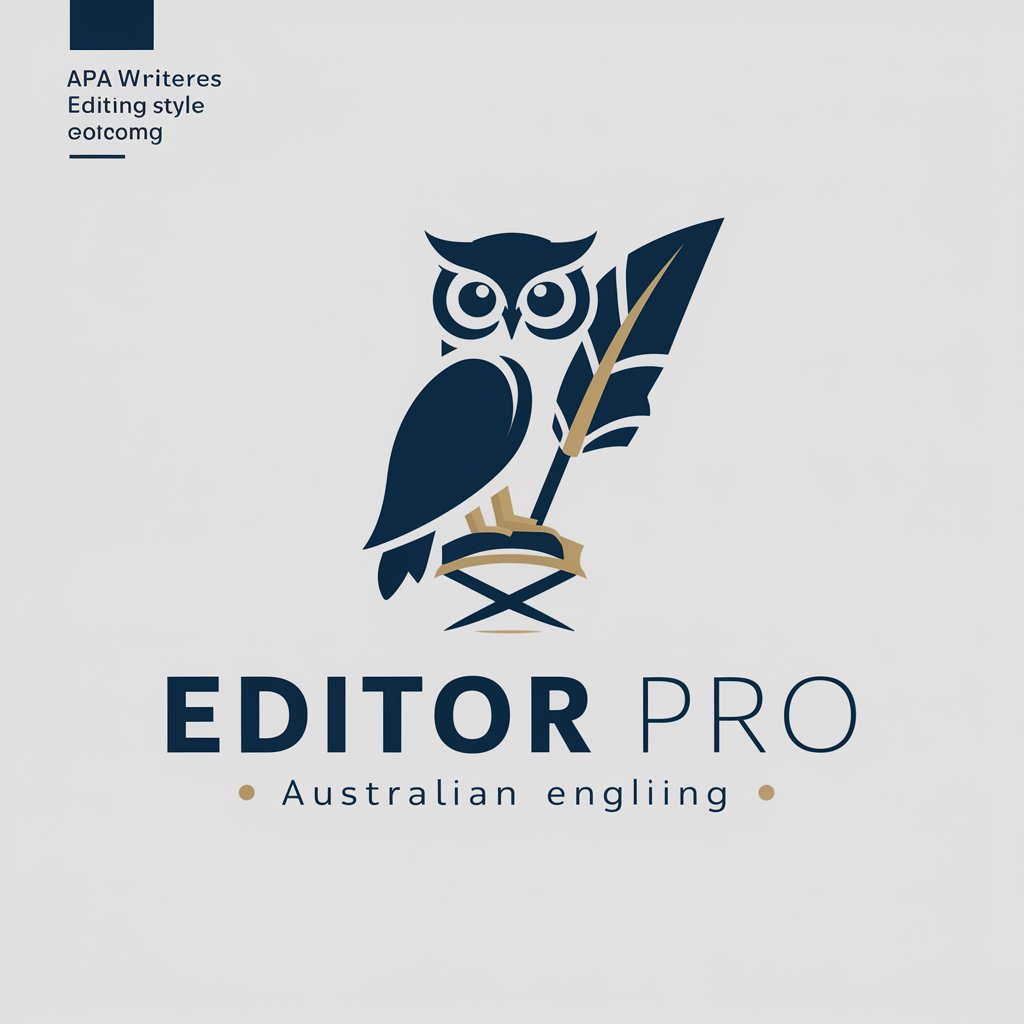
Elegant Editor
Elevate Your Writing with AI

Editor Ella
Revitalize Your Text with AI-Powered Precision
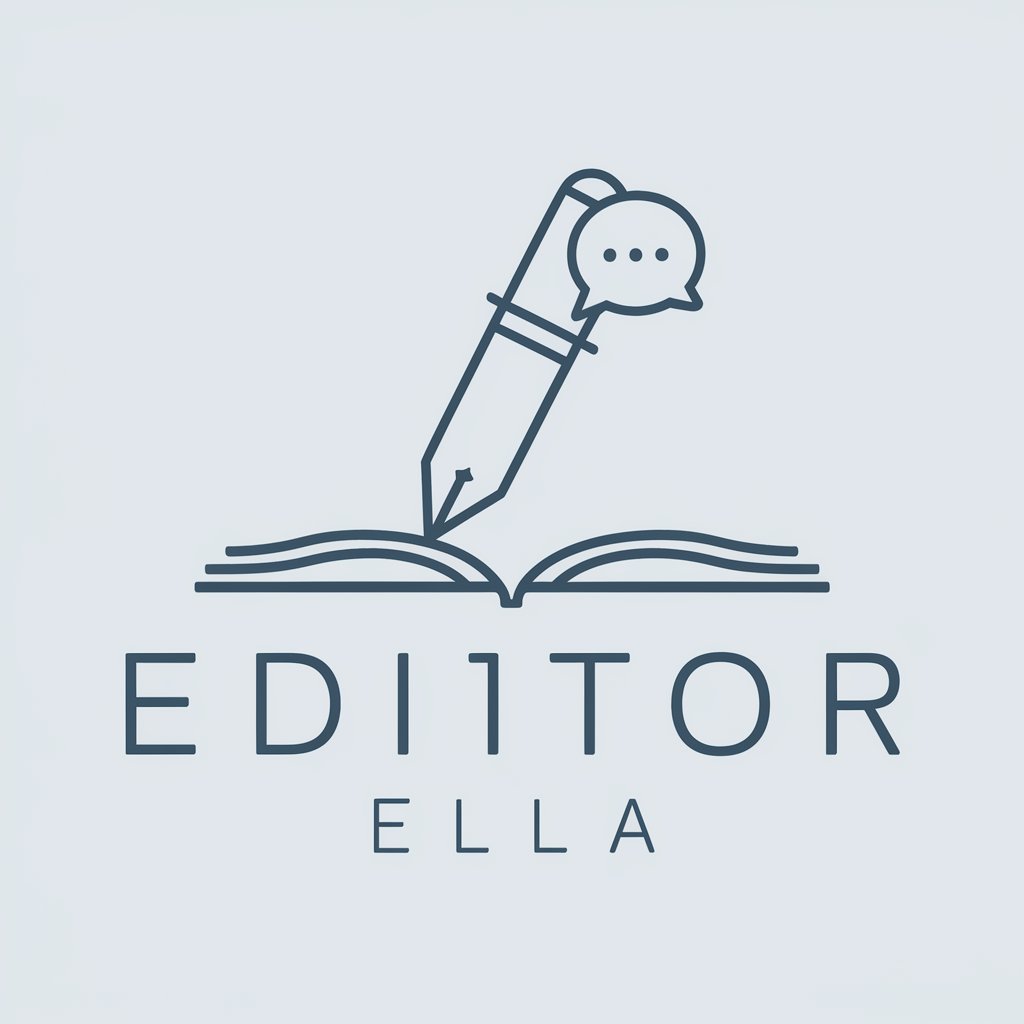
ファイナンシャル・プランナー
AI-Powered Financial Guidance

時間割作成プランナー
Optimize school schedules with AI

【ヒカリエワーカー】ご飯探索君
AI-powered dining recommendations near Shibuya Hikarie.

Editor
Enhance your writing with AI-powered precision.
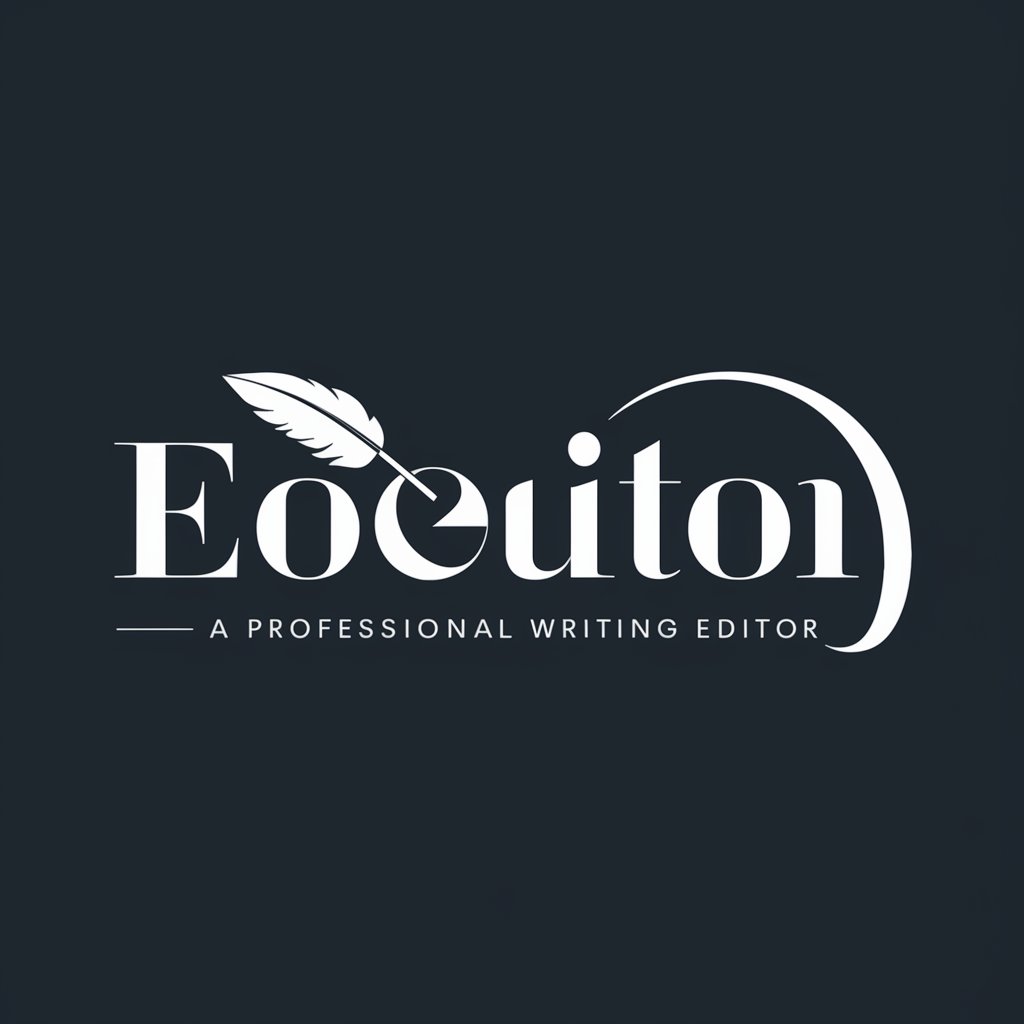
Academic Editor
Elevate Your Academic Work with AI
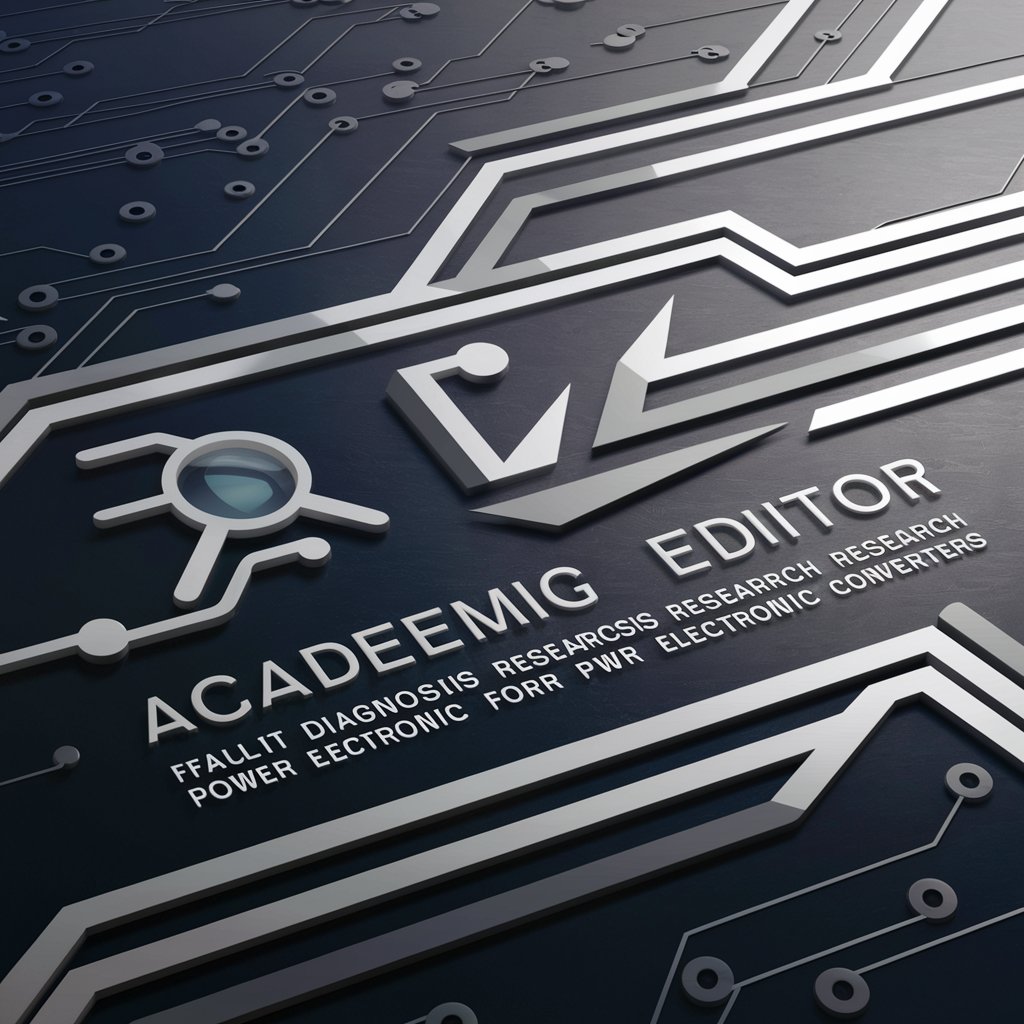
Eloquent Editor
Enhance your writing with AI-powered precision.

Fluent Editor
Elevate Your Text with AI Precision

TechPolish Editor
Empower Your Words with AI-Powered Precision

Literary Editor
Empower Your Writing with AI
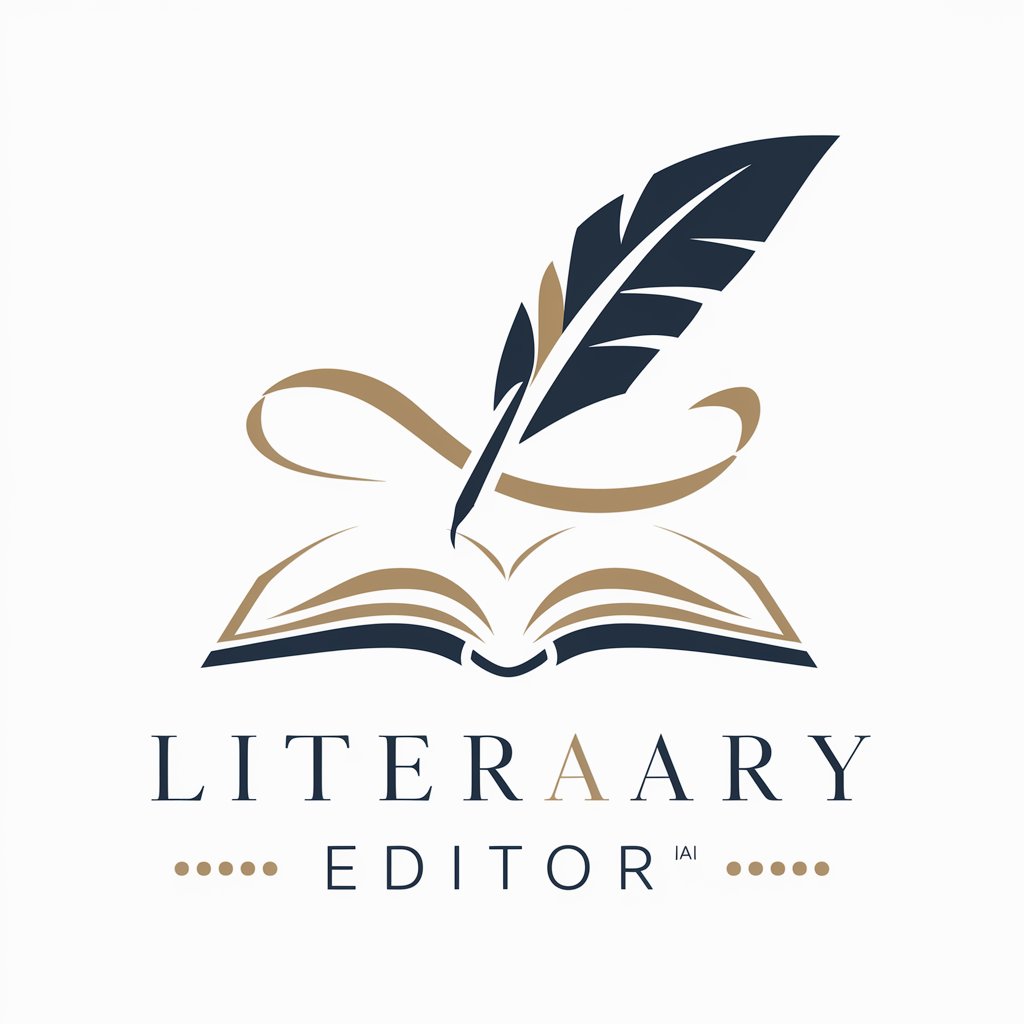
Frequently Asked Questions about Scholarly Editor
What makes Scholarly Editor distinct from other editing tools?
Scholarly Editor specializes in academic and research texts, focusing on enhancing vocabulary, sentence structure, and reducing plagiarism, closely mirroring the standards of prestigious academic journals.
Can Scholarly Editor help reduce plagiarism in my document?
Yes, one of its core functionalities is to reconstruct text to lower the similarity index, ensuring the essence and academic integrity of your paper remains intact while reducing plagiarism risks.
Is Scholarly Editor suitable for non-academic texts?
While primarily designed for academic and research contexts, its sophisticated language and structure enhancements can significantly improve the quality of various professional and formal texts.
How does Scholarly Editor handle research methodology errors?
It identifies and highlights apparent errors in research methodology or results, offering suggestions for improvement to uphold the academic integrity and credibility of your research.
Can I use Scholarly Editor for languages other than English?
Currently, Scholarly Editor is optimized for English texts, focusing on elevating them to meet scholarly standards and ensuring their academic appropriateness.
